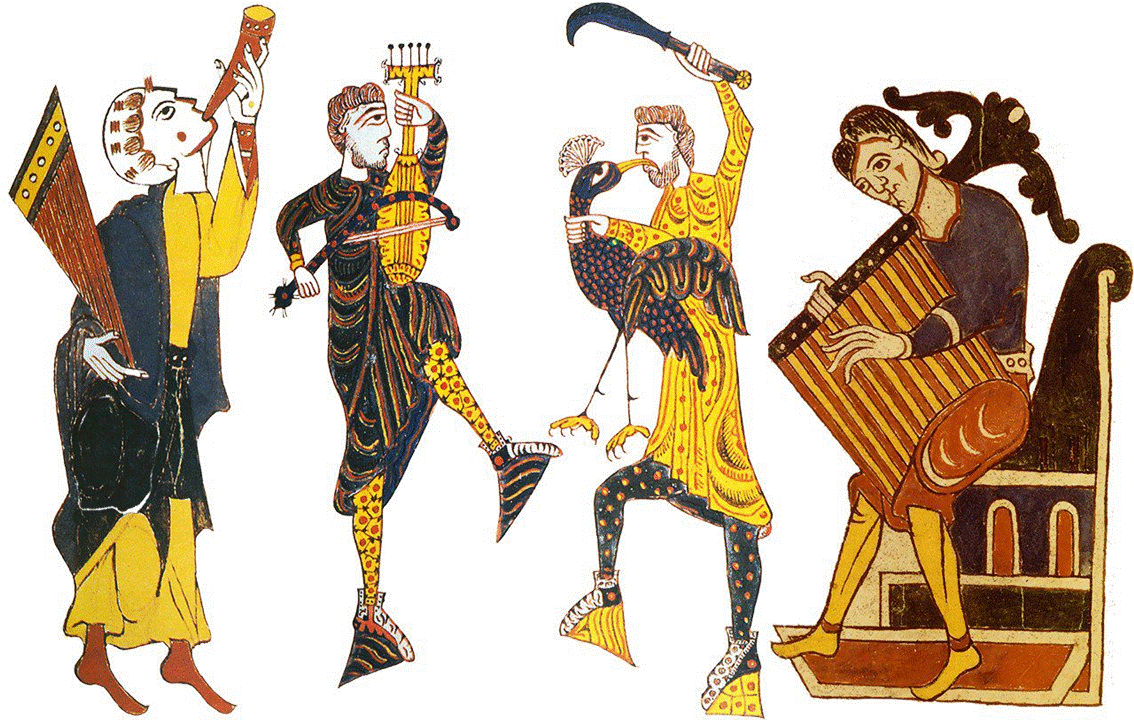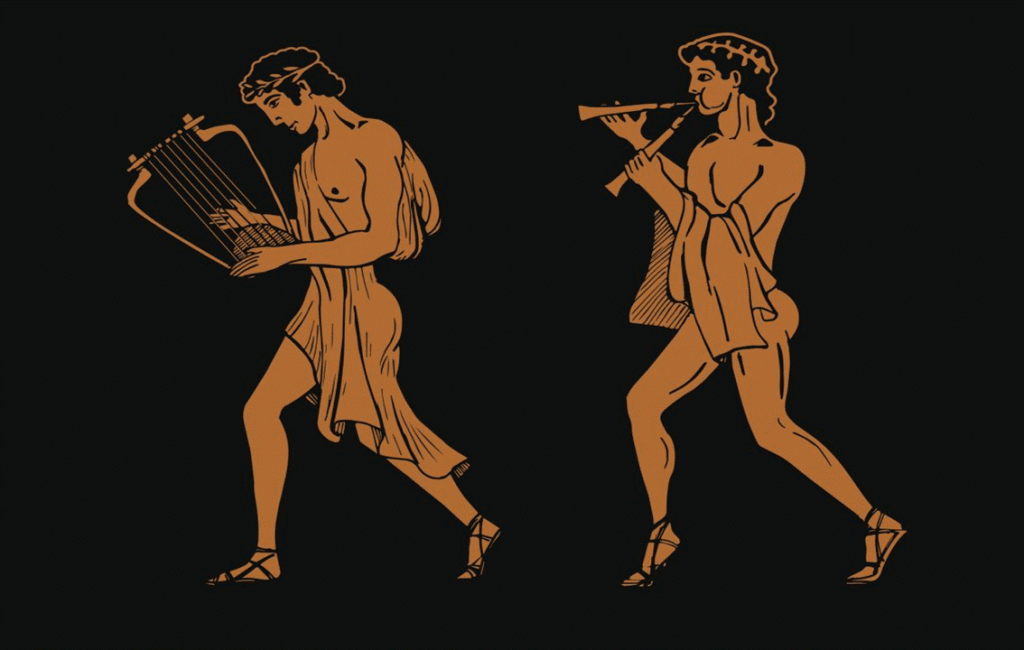
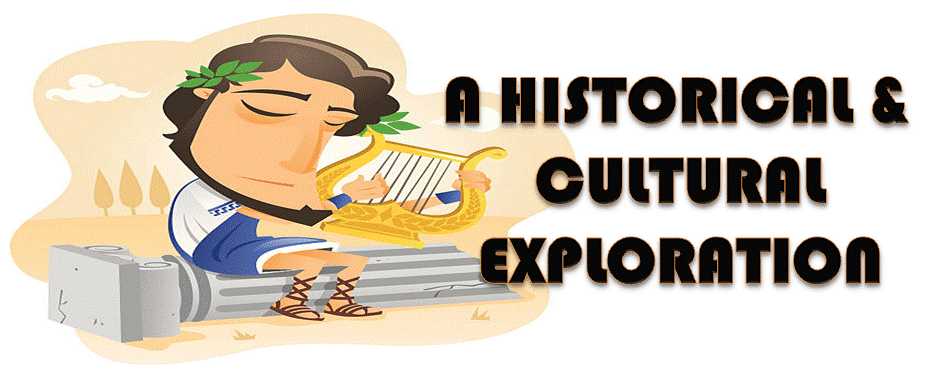
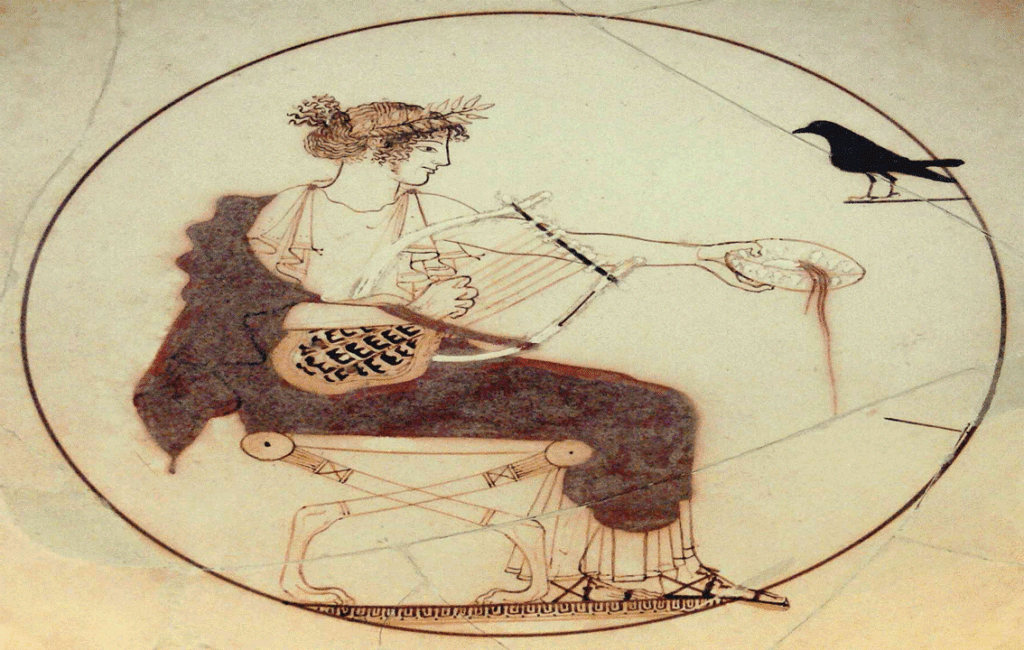
THE ORIGINS OF GREEK MUSIC
It can be said that the founders of Greek music are not simply individuals but rather a convergence of cultural practices that include several Greek individuals and movements that all share a range of philosophical ideas. Several influential Greek figures have also helped to form this art throughout history. These include several notable Greek theorists and influential composers. The result is that music is an integral part of Greek and Cypriot cultural heritage. The broader cultural Greek context has also helped to shape its evolution through the ages. The roots of this lively form of expression stretch back to antiquity, with several references to music within Greek mythology. Apollo, the god of music, poetry, and prophecy, is a good representation of this. As a result, Greek mythology helps to form the foundation and cornerstone for the art form’s origins and the basis of ancient Greek musical tradition.
A CULTURAL FORM OF EXPRESSION
Music in ancient Greece was considered an important part of society. The consensus was that it was a gift from the gods. Greek poetry, dance, and drama were all embraced and intertwined with music, and all of these arts served to collaborate well with most public ceremonies and festivals. As well as this, music often accompanied several religious rituals and social gatherings.
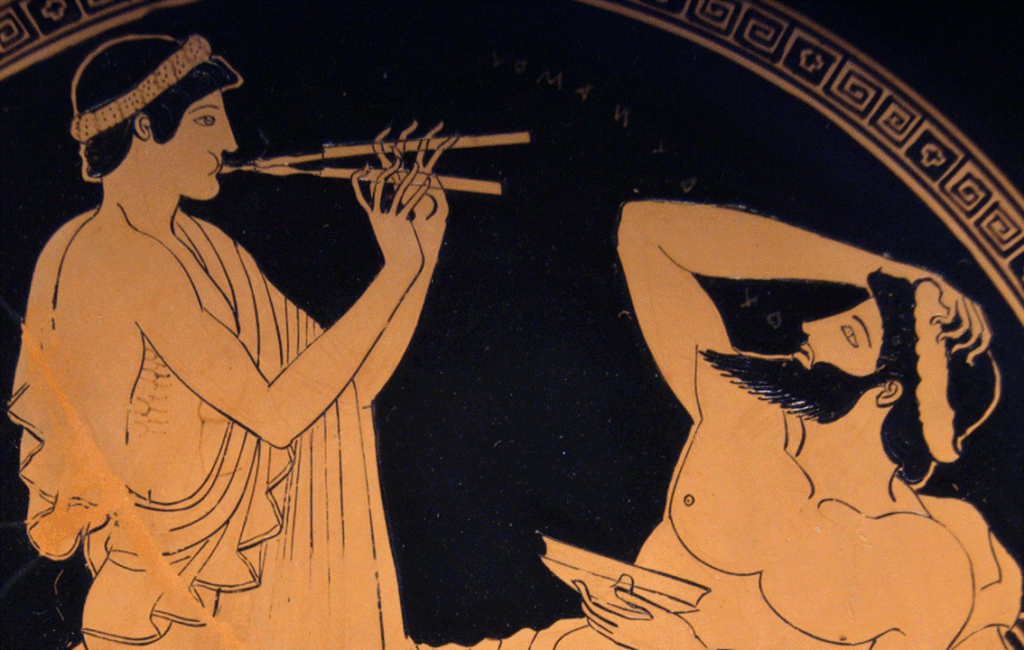
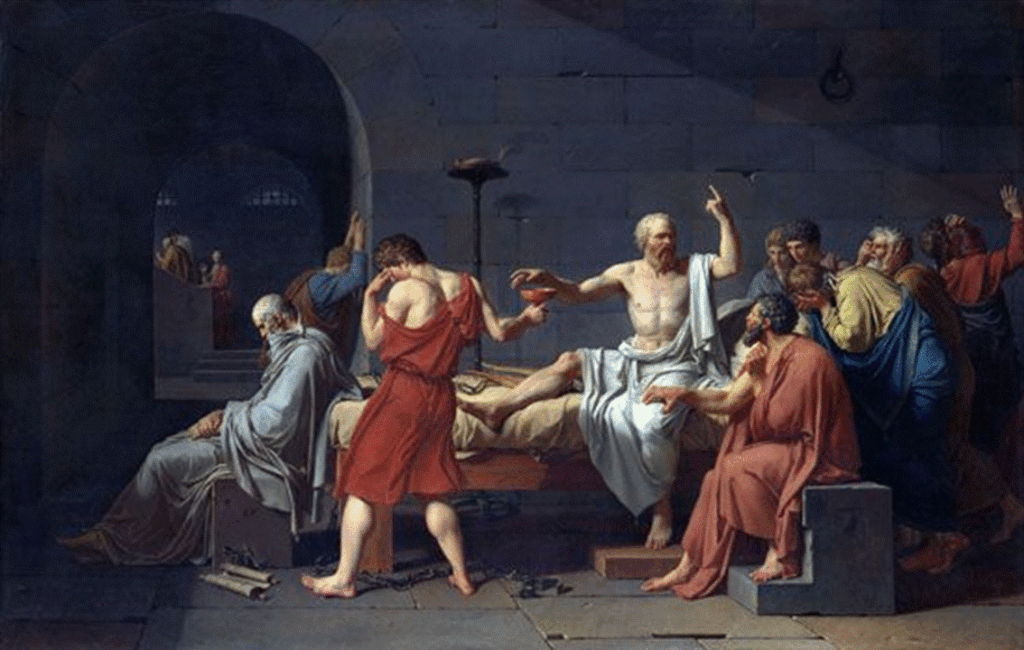
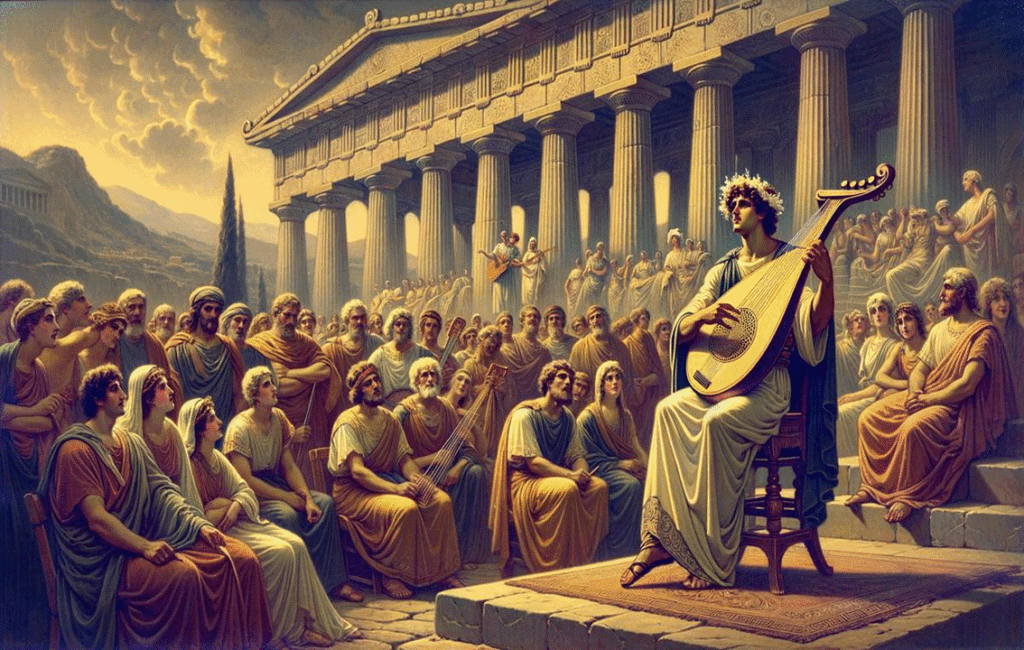
PYTHAGORAS
Later notable contributions by philosophical thinkers like Pythagoras were also crucial in shaping the theoretical aspects of Greek music. Pythagoras believed in the relationship of mathematics and its influence on the nature of music. He extensively explored the relationship between numbers and musical intervals and his concept of the ‘Harmony of the Spheres’ suggested that celestial bodies produced their music through their movements, which directly fed into his belief that music had a cosmic, as well as a mathematical significance.
ARISTOXENUS
Pythagorean ideas fed directly into Aristoxenus’s thinking, and he would later emphasise the importance of perception and auditory experience in music. As well as embracing the mathematical approach of Pythagoras, his findings proved that music required a subjective understanding of both melody and rhythm. His teachings proved that music relied on far more than mere mathematical equations. Aristoxenus’s work would later lay the foundation for the later musical theory that would continue to influence Western world music for centuries thereafter.
TERPANDER
Terpander is perhaps the earliest historically certain figure in the music of Ancient Greece. His poetical compositions used extremely simple rhythms, and he is often referred to as the father of Greek music and lyrical poetry. He is known for systematising existing musical styles and then using them to create new ones. He simplified the rules of the modes of singing and formed, out of these syncopated variants, a conceptual system. This led to a new era of music that used systematised musical styles from both Greece and greater Anatolia.
ARION
Arion is credited with transforming improvised processional songs into a formal art form. This is considered a step toward the development of the Greek tragedy. Arion is most famous for the mythological account of his life when he was rescued by a dolphin. After he obtained significant wealth, the crew of his ship plotted to kill him and steal his treasure. He, in turn, asked to sing a final hymn before his pending execution. A dolphin, charmed by his music, appeared and carried him on its back to safety after he leapt into the sea. A bronze monument depicting a man riding a dolphin was then dedicated to Arion at Taenarum, in Corinth. This story was recounted by the historian Herodotus. Arion and his lyre were also placed among the stars as a constellation.
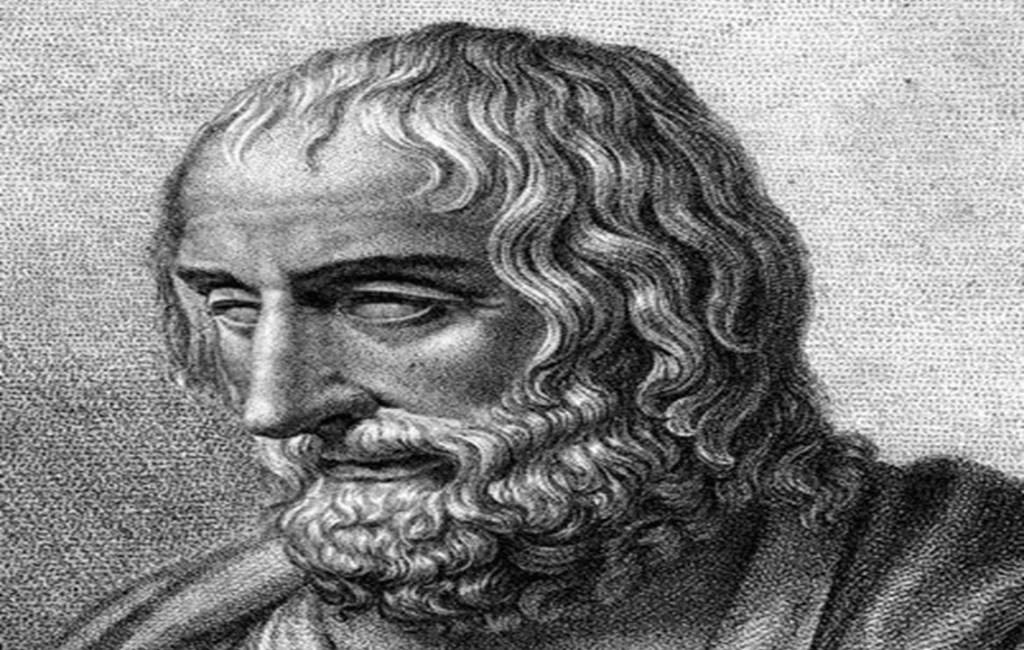
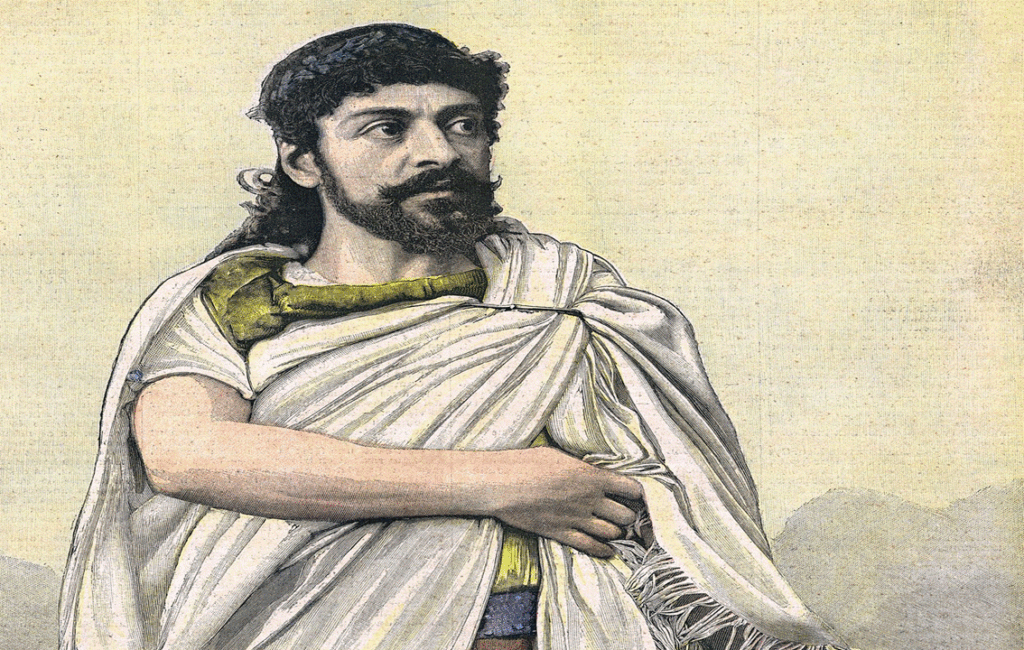
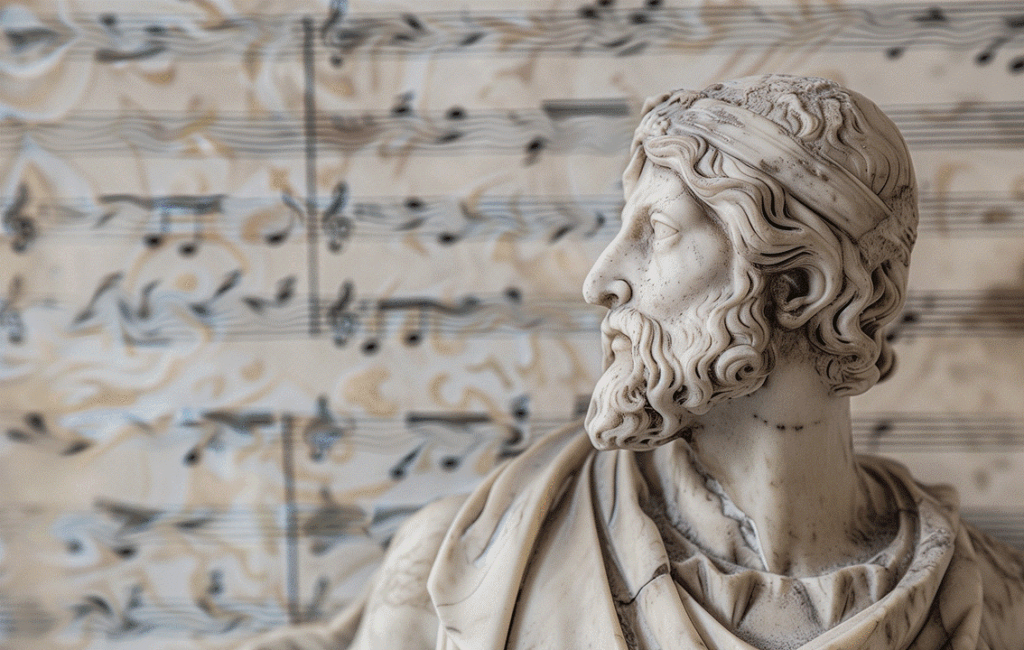
SOPHOCLES & EURIPIDES
Music’s role within Greek society evolved and by the classical period, music had become central to theatrical performances. Composers, such as Sophocles and Euripides, integrating music into their popular plays and this music form was often used to set the emotional tone whilst supporting the narrative. This use of music established a strong relationship with storytelling and led to the creation of the first music notation systems that preserved the dissemination of musical works of this era. As a direct result, the ‘Seikilos Epitaph’ dating back to the 1st century, is one of the oldest surviving examples of written music in existance.
A BYZANTINE INFLUENCE
Musical traditions continued to evolve when Greece embraced the Byzantine era, following the fall of the Western Roman Empire. The music of the Byzantine Orthodox Church, characterised by its use of modes and vocal harmonies, dominated music during this time, and the Byzantine musical system, predominantly influenced by Eastern traditions due to the empire’s vast reach, introduced new scales, modes, and rhythmic patterns to Greek music. St. John of Damascus and St. Romanos the Melodist, were significant in developing Byzantine hymnography. The compositions of St. John of Damascus are still performed in liturgical contexts today and he is also noted for his theological writings on music. St. Romanos the Melodist is also celebrated for his ability to convey profound theological themes through his hymns.
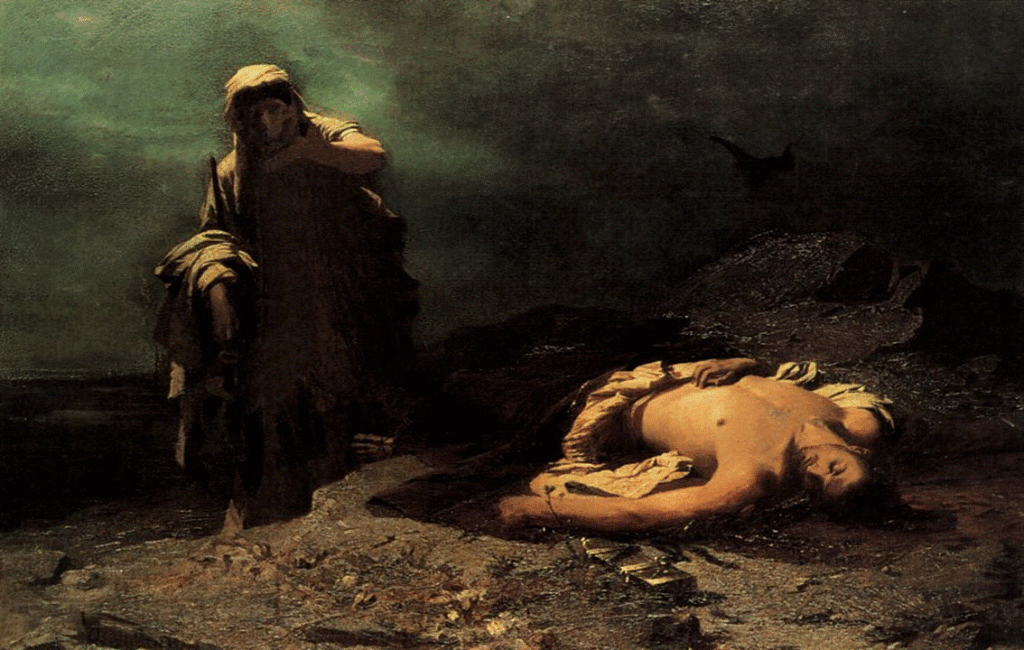
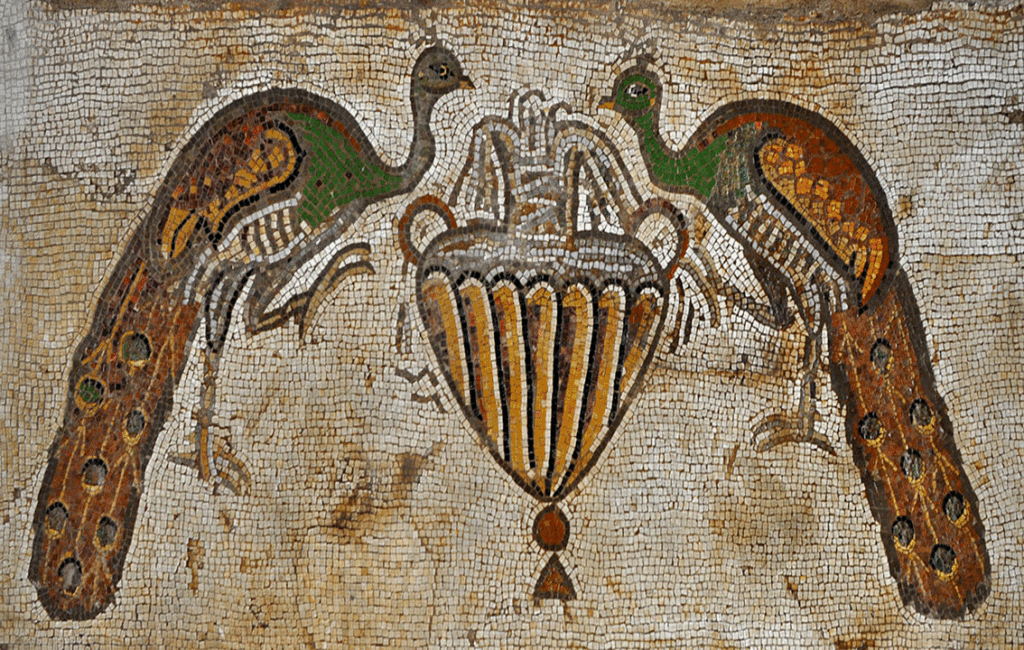
THE BOUZOUKI
The Greek national instrument, which took prominence in the late 19th century, has played a significant role in the development of Greek music. The traditional stringed musical instrument is not only a representation of Greek music, but still deeply influences various modern genres of Greek music today, proving its relevance in an ever-changing modern Greek music scene to the extent that some say if there is no bouzouki, then there is no Greek music.
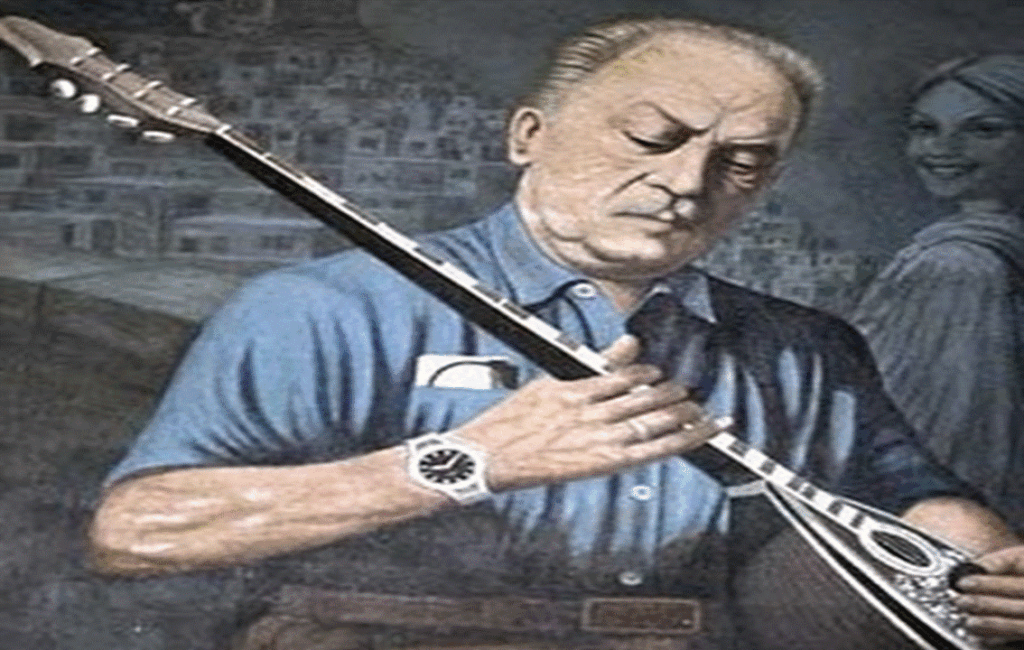
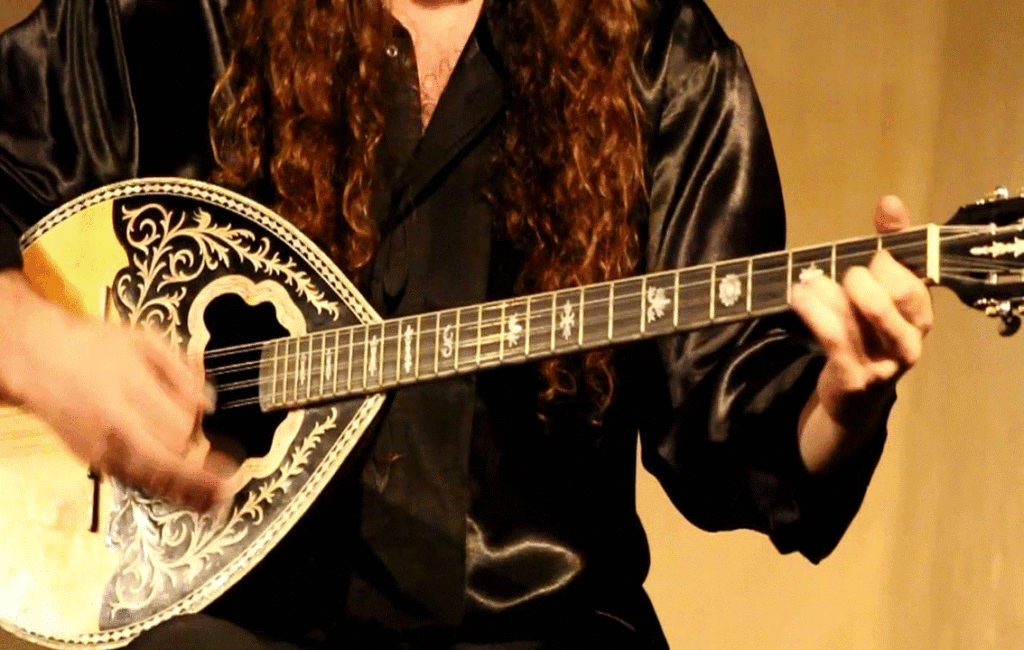
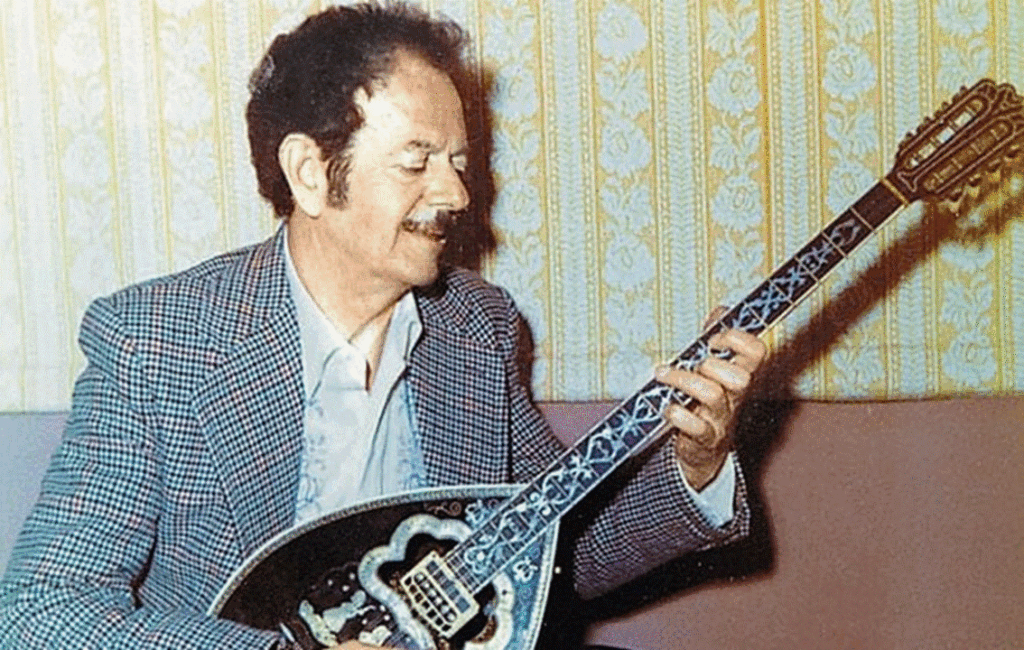
MARKOS VAMVAKARIS & VASSILIS TSITSANIS
The Ottoman conquest of Greece in the 15th century had a significant impact on the evolution of Greek music. This period saw the blending of Greek and mainly Turkish musical traditions, leading to the emergence of multiple genres that included probably the most notable forms of Greek music recognised today. Rembetiko, which is often regarded as the music of the marginalised working class, emerged in the early 20th century and is characterised by its themes of love, loss, and social struggle. Prominent figures include Markos Vamvakaris and Vassilis Tsitsanis, who played significant roles in popularising this genre mainly in urban Greece. Their songs reflected the socio-political realities of the time, often addressing issues of poverty, exile, and hardship. This resonated with the Greek population, making Rembetiko music a powerful form of expression representing the Greek national identity during times of turmoil.
MIKIS THEODORAKIS & MANOS HADJIDAKIS
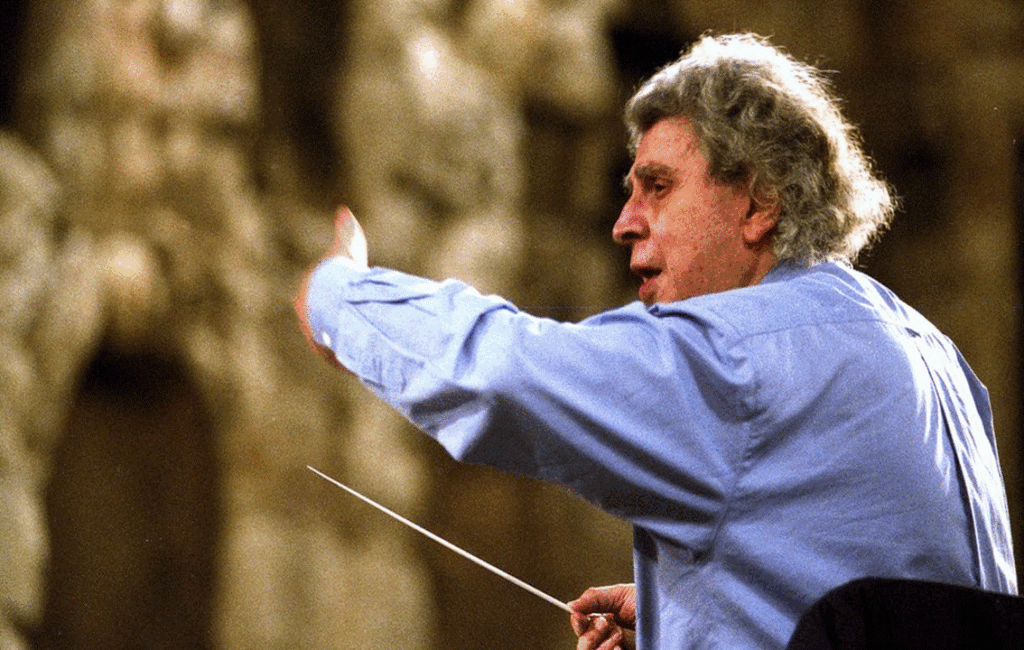
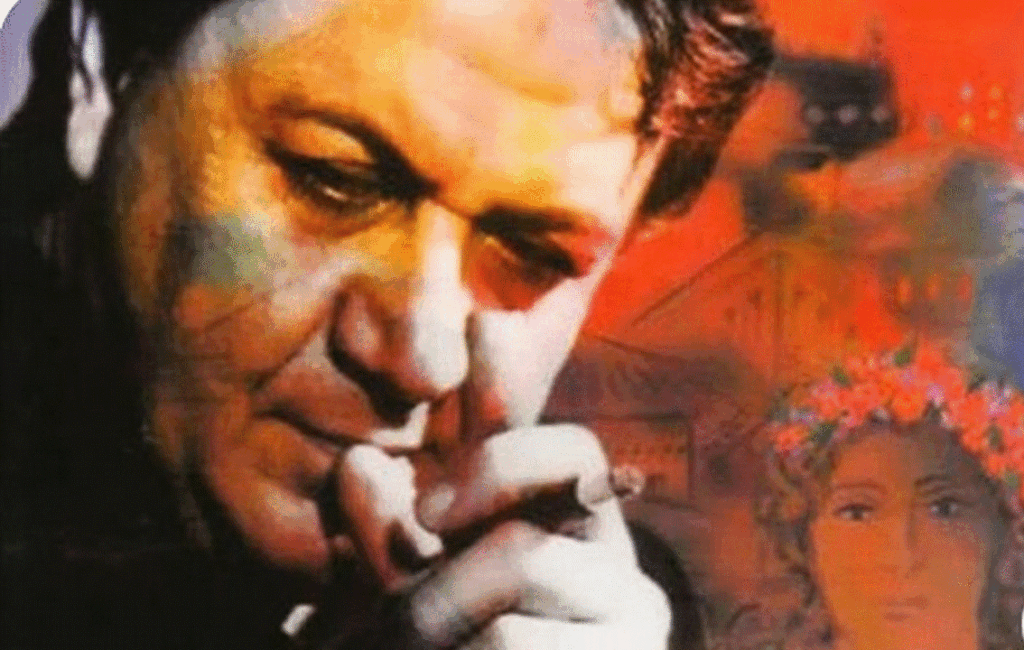
The 20th century witnessed a resurgence of interest in Greek music, fuelled by national identity movements and a desire to preserve traditional forms. Composers such as Mikis Theodorakis and Manos Hadjidakis fused traditional Greek music with contemporary styles, contributing to the global appreciation of Greek culture. Mikis Theodorakis is particularly known for works like ’Zorba the Greek,’ which incorporated elements of folk music into popular cinema.
MODERN CULTURAL FESTIVALS
The establishment of cultural festivals, such as the Athens Epidaurus Festival, celebrates traditional and modern interpretations of Greek music, featuring both its rich history and contemporary relevance. Additionally, the introduction of modern technology, recording techniques, and global connectivity has allowed Greek music to reach international audiences, allowing it to develop further by merging with other musical traditions and genres. The contributions of modern musicians, theorists, as well as composers, highlight a rich tapestry of influences that all reflect the complexities of Greek identity, societal values, and artistic expression. As Greek music continues to evolve, it retains its essential qualities that celebrate both its historical roots and its capacity for innovation. This ensures that it remains a vital force in the cultural landscape of Greece and Cyprus and beyond.


